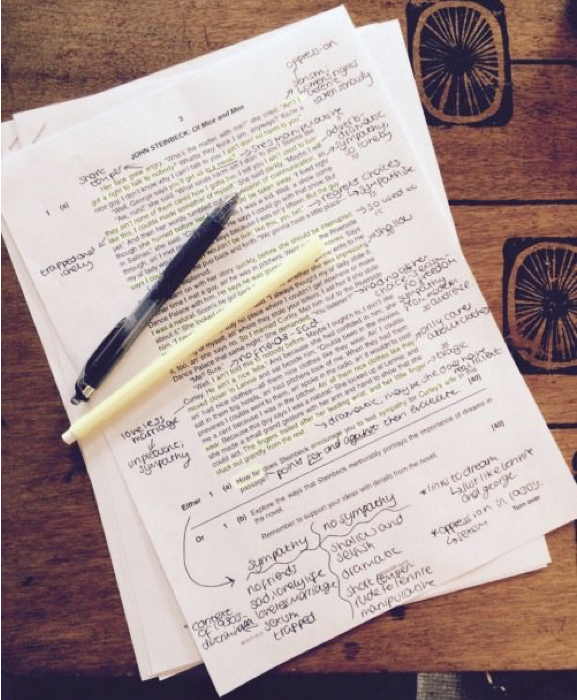“A PhD thesis is a written draft of the entire work you have done during your doctorate degree.”
Writing a thesis for PhD is the toughest part of the PhD degree, however, achieving a PhD is itself the toughest task to complete. The PhD- doctor of philosophy is the top privilege in any education system. The reputation of universities is built from its PhD candidates, how good they will do in the real world.
The reason why the PhD degree is so important is that once a candidate has awarded it, he or she has the responsibility to solve the real-world problem with their logical intelligence.
So it is obvious that getting a PhD is a tough job. A PhD thesis is a key element of the entire academic program because it is a written proof of your work. A good thesis should be clear, self-explanatory, and errorless.
A thesis of your PhD clarifies to the reviewer how you perform your research during the tenure. If you have done an excellent piece of research but aren’t able to demonstrate it properly through your writing, believe me, you have to pass another year.
So, writing a PhD thesis is undoubtedly a key to success in a doctorate or PhD. Here in the present article, I will give you sixteen proven tips for writing a thesis for a PhD.
- Read things: thesis, reviews and articles
- Create a rough draft
- start writing
- Avoid spelling and punctuation mistakes
- Defeat grammar mistakes
- Proper citation
- Listing the references
- Review it by your colleague first
- Include objective, abstract and annexures
- Number properly
- Title page and front matter
- Backup the thesis
- Make thesis impressive and attractive
- Avoid all other stuff
- Print it and note it!
- Don’t try fancy things
Read things- thesis, reviews and articles:
The very first tips before writing a thesis is to start reading things. Read as many articles and thesis as you can in the initial period. Why to read first?
Trust me, if you write your thesis without reading others, at least after completing the entire thesis you will regret that I could do better than this. So many PhD theses are now available on various online platforms, go and download it and start reading it. Understand their writing style and content.
Read articles, research papers and thesis related to your topic and make notes on which topics and points they have covered in it. Now in the next step-
Create a rough draft:
You are not an expert and that is why you have allocated a PhD supervisor to guide you throughout your PhD. Create a rough draft, note down what you will write in which chapter.
Divide your thesis in chapters like introduction, review of literature, material & method, result & discussion, conclusion and references. Next, decide which piece of information you want to write in which chapter. For example, some general overview and information can be written in the introduction part.
Your method, instruments you used, SOPs and other related information are written into the material and method part. While all your results should be written into the consecutive chapter or in the results and discussion part.
Based on that, mark the information when you are reading the stuff. Like this, see the image.

Start writing:
To do all these things we have discussed in the above section, you may have passed two years of your PhD, if so, immediately start writing your dissertation from anywhere.
It is not necessary that you have to start writing the “introduction” first. You can start from anywhere, for example, start with the “material & methods” , write up all the information of the method, process, SOP, protocol, materials, instruments and other things you have used.
And then write other chapters as you read various articles.
Spelling and punctuations:
Your thesis should be free from spelling and punctuation mistakes. A punctuation in the wrong place can misinterpret the sentence.
“According to one survey only 20% of the world’s population can speak and write english.”
Writing a draft of 300 to 400 pages for a non-English speaking person is the toughest task. Spelling mistakes and punctuation are common mistakes that annoy your supervisor more.
Don’t panic, there are some intelligent tools that make your writing assignments like thesis, report, dissertation and research paper spelling and punctuation error-free.
“Grammarly” is one of the most trusted, widely accepted, intelligent and fastest tools that help you to do so. After the next section which is also related to writing, I will show you how you can use Grammarly.
Related article: How long does it take to get a PhD?
Prevent grammatical mistakes:
Grammar is yet another problem for non-English speaking people, verbs, nouns, adjectives, tenses, speeches and voices are the common mistakes noticed.
Grammatical errors make your thesis worsen! Even your research paper can’t be accepted in reputed and peer-reviewed journals.
Proper use and balance of active and passive voice and the appropriate use of direct and indirect speech is very crucial.
Again, thanks to Grammarly, you do not need to bother about grammar. Grammarly will itself suggest to you what to do with your sentence. Also, it will indicate grammatical mistakes and suggest to you how to correct them. The auto-correct option of it is smarter than any other.
How to use grammarlay?
The first option is to ‘use the Grammarly extension’ for your browser. For Chrome, you can download it from the chrome store and install it. Once you are done just turn it on.

For all your docs, email, social media handles and other stuff, it will suggest grammar, spelling, and punctuation in real-time.
The Grammarly add-on is also available for MS office and Pages (PC and Mac), You can purchase it here: Grammarly premium.
In addition to this, you can use the Grammarly for your mobile keyboard for iPhone and Android. Download Grammarly for free: Download
We have covered an amazing article on grammarly; what is it, how to download it, prices and benefits. Go and read it here: Grammarly: Your PhD writing assistant.
Citations:
Mentioning someone in your report, paper or thesis for his own work is known as a citation. Cite every piece of information properly and correctly, experts always check the citations, first.
Your citations dictate how correctly and sincerely you have done your searcher. That is why in the first point I had mentioned that, read every article and make a note on it; who wrote it, date and what they had researched?
You can cite it with the number and name of scientists & year of publishing.
Listing the references:
Now in the next step, you have to arrange the references you have used in the citation. For instance, what information you cited as (1), the same you have to mention in the reference as (1).
The reason for doing this is to give proper navigation to cross-check the information. Remember, if you have not done accurate citation and referencing it will be included in plagiarised content and your thesis will not be considered for submission.
Again don’t be panic, Use the online tool “Mendeley”. It will take care of your citations and references. It will work as you write. It automatically creates the citation at the end of the sentence and creates another file to reference it.
You can use a citation method recommended by your university either numbering or name & year for citation. Down load Mendeley from here its free.
Review with your colleague or friend:
Before submitting your thesis to your supervisor, please review it properly with your colleague or friend whose English is good. Although Grammarly had corrected all your grammar and spelling mistakes.
Still, make a quick check with your friend and get applause from your guide.
Include objective, abstract and annexures:
Until and unless you don’t have included your objectives to thesis, how can someone understand your results?
Enlist general and specific objectives of your study in the objective section or introduction (whatever suggested by your university or as per the guidelines).
Also, at the beginning of the thesis, include a 250 to 500 words abstract which is the brief and comprehensive overview of whole research.
Besides this, at the end of the thesis make annexures for calculations and other. These three things should be there in your thesis because objective, abstract and annexures give ideas to a reviewer regarding the background of your thesis.
Numbering:
You will not be there while the reviewer reviews your thesis thus all things that make the navigation easy should be there in the draft or thesis. Numbering is one of them. Based on the number given in the index section to each chapter, the reviewer examines the thesis.
For example, if he wants to read the material and method first, then he will go through the page number given to that chapter in the index. If he didn’t find it on that page number, then, only God will save you.
What I mean to say, check and recheck all the page numbers of all chapters, tables and images to make it easy for the examiner to navigate.
Related read: Doing part-time PhD.
Title and front page matter:
Your thesis should be in accordance with the recommendations given by universities to write a thesis. However, matters like abstract, introduction, materials & methods, results & discussion and interpretations are common for all. Although the matter for the front page may vary among universities.
But the common formats include the title of our PhD, your name, university and department name, your supervisor’s name and designation.
Backup thesis:
While writing, it is very important to autosave your content, first, and second, make copies and back of your write up in multiple devices. Let me tell you, if somehow your computer stops working, you will be in a big problem, trust me.
Always make a habit to save your PhD thesis on multiple devices. Use google drive or cloud storage. Also, send a mail of your everyday work to yourself or to your supervisor, so that you can excess it from anywhere.
Making thesis impressive and attractive:
I know a thesis is an education written draft but still it should look attractive, use images, charts, pies and tables to dictate results and other points. Also, try to explain things by flowcharts.
Usually, images and photos can be used in introductions and reviews, flowcharts and workflows can be used in material-methods and charts, pie charts and graphs are used to indicate results. It makes your thesis more interesting to read.
After all, a reader should be engaged with your thesis.
One of the important things while using an image you have to take care of is the source of the image. If you are using someone else’s image or picture, make sure to give them credit, moreover, you can also use your own images.
Avoid all other stuff:
While writing a thesis, try to concentrate fully on the content because writing is a hard thing. Avoid checking mails, social media, messages and other things while writing.
In addition to this, always prefer to write in a calm place, noisy places distract you.
Print it and note it:
Print chapters once you think you have completed it, on the next day morning when you feel fresh, read it on your high tea, take pencil and note down the mistakes.
The point of doing all these things to make the thesis nearer to perfect before submitting it to your supervisor.
Don’t try fancy things!
Keep in mind that you are preparing a professional write up, not some personal blog post or facebook note. Therefore, the thesis or dissertation should look professional, simple and straightforward.
Try not to fill fancy, lengthy words and phrases or wordy sentences. Avoid complex sentences. Write to the point.

My opinion:
Writing a PhD thesis is not a one day process. You can’t write your entire thesis in a day, week or month. It required time. As per my personal opinion, start writing your thesis from the first week of your PhD.
You have to pass at least three year to get a PhD. You think it is more than enough but trust me it is not! So don’t wait, start reading and writing.
Conclusion:
This is all for writing the thesis guys. I hope it will help you. Also, use grammarly premium, it will help you not only in PhD thesis but also in future to write research papers and other stuff.
Download the free version from here or purchase it.

Dr. Tushar Chauhan is a Scientist, Blogger and Scientific-writer. He has completed PhD in Genetics. Dr. Chauhan is a PhD coach and tutor.




